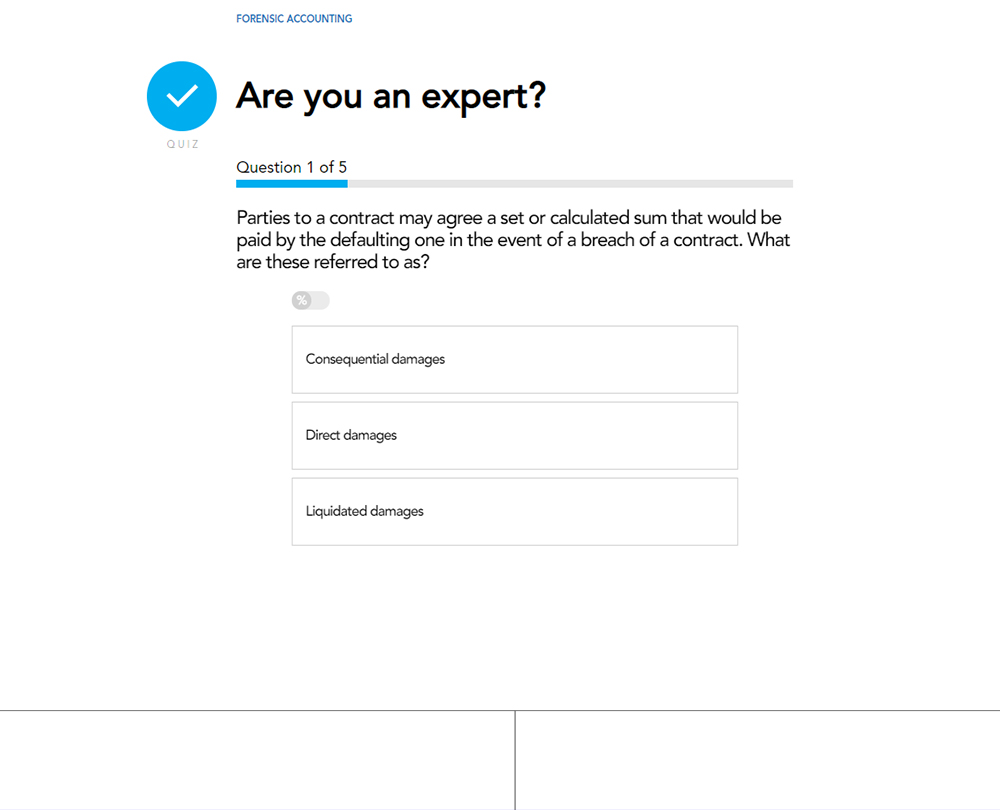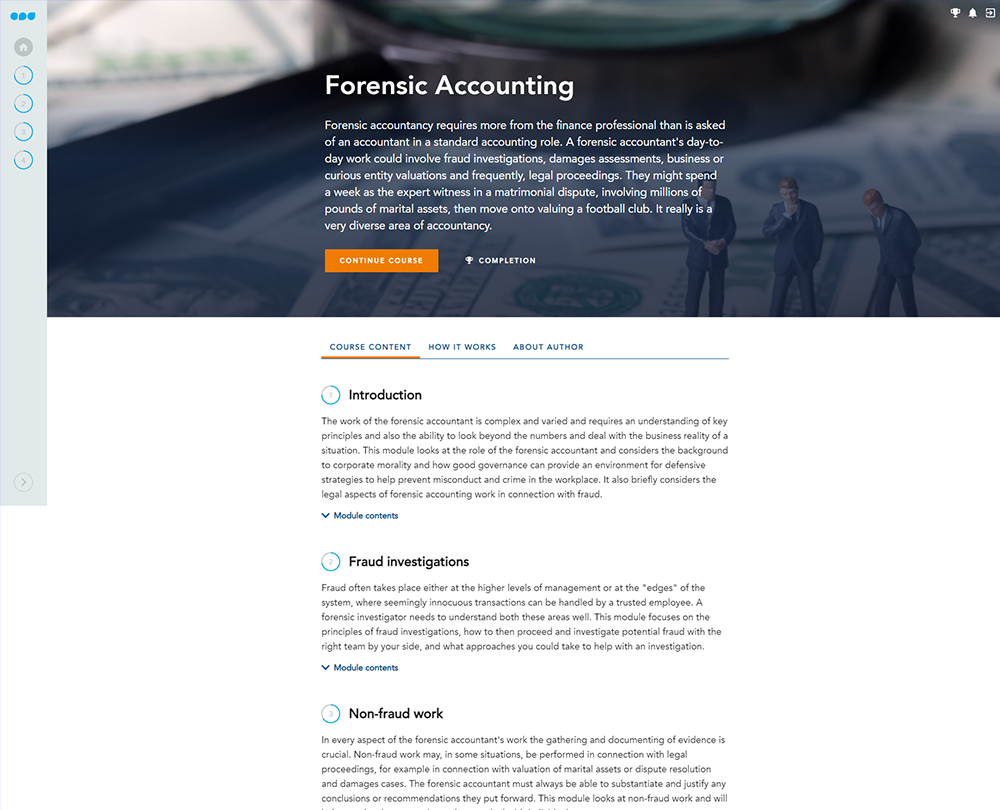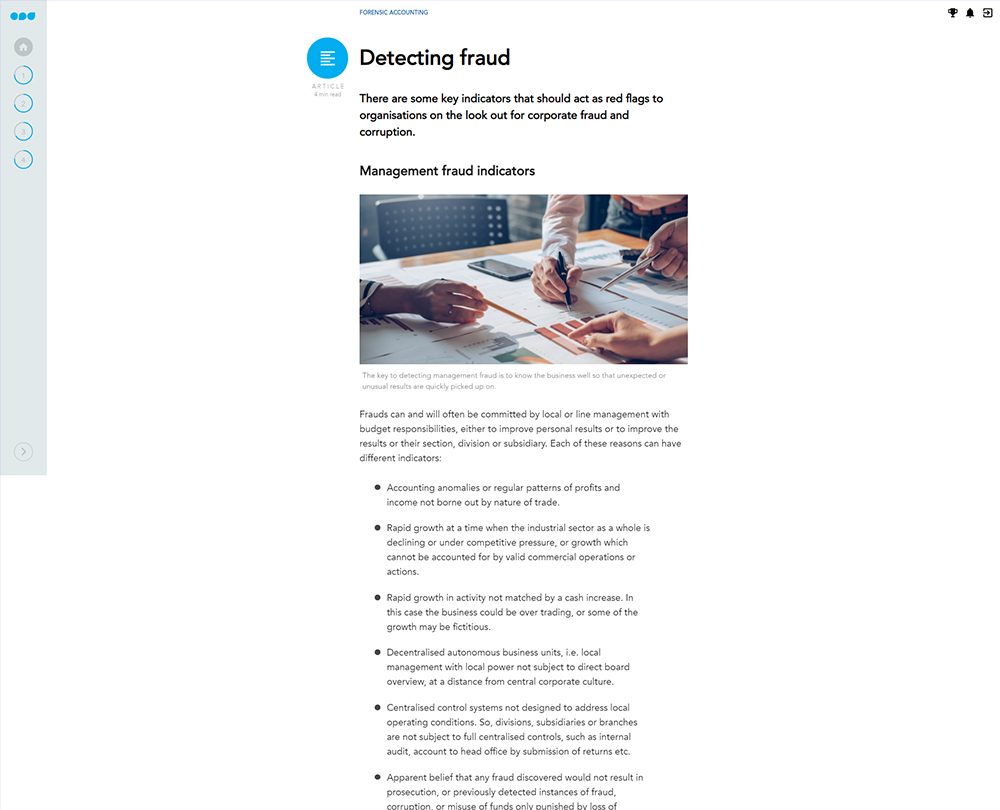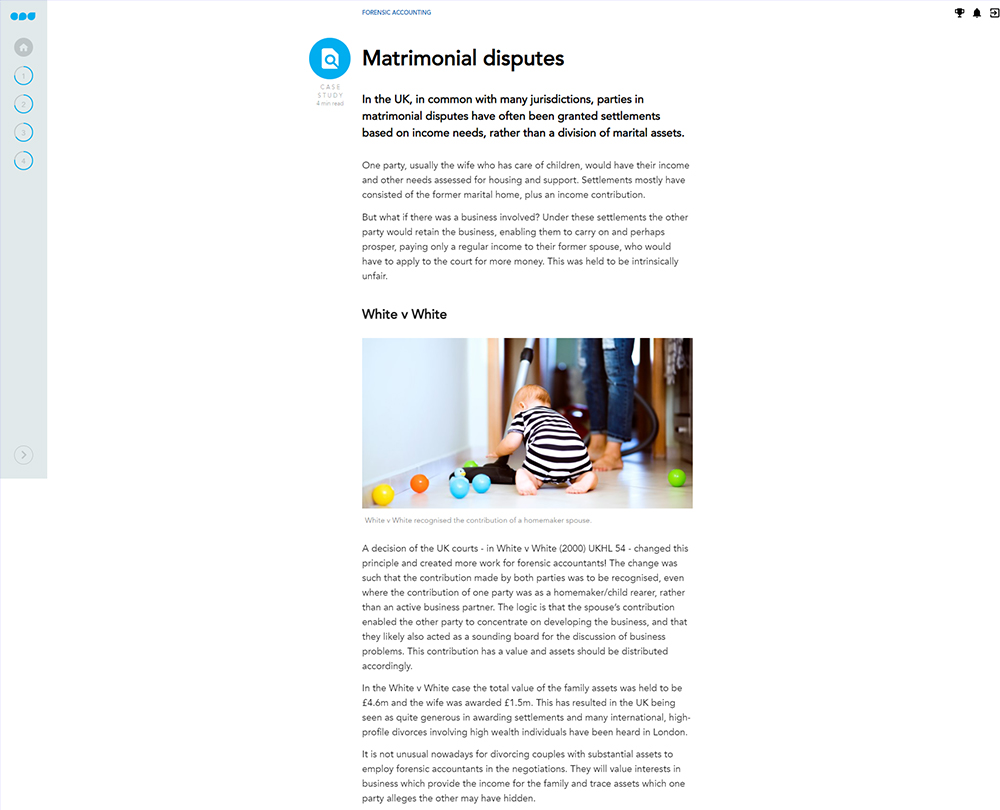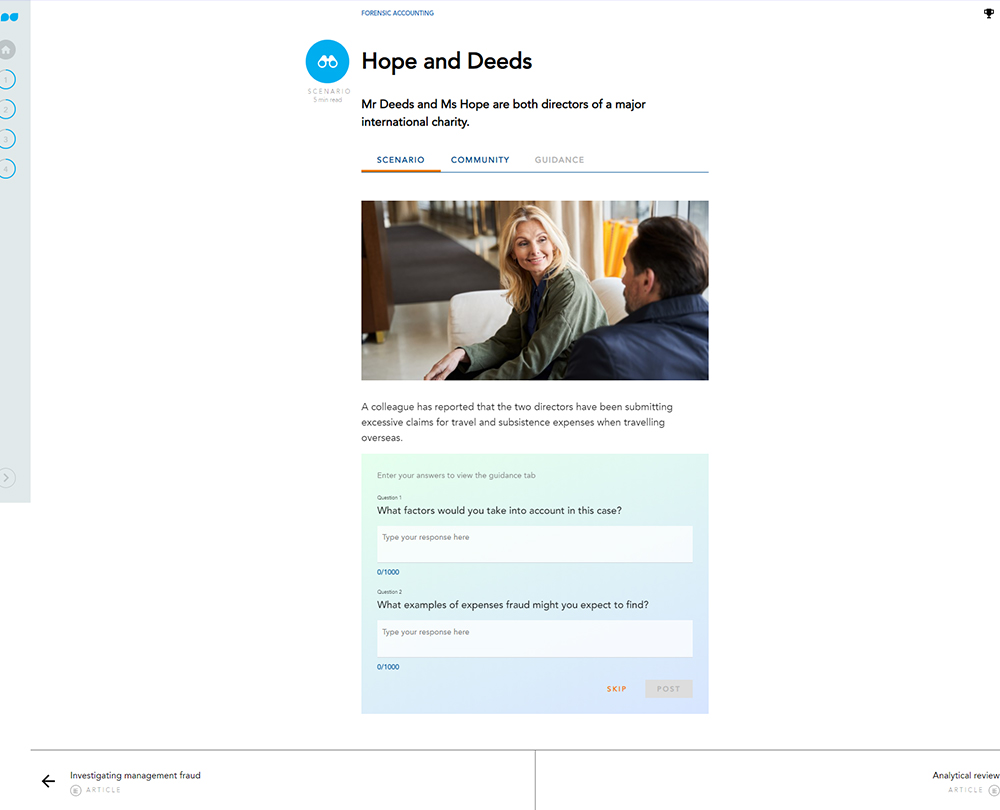Forensic Accounting
This course introduces you to forensic accounting by giving you a level of knowledge and skill that will enable you to understand more about this role, identify fraud and plan appropriate investigations.
This course will enable you to
- Understand the role of the forensic accountant
- Identify misconduct including money laundering
- Gain an understanding of how to prevent fraud
- Plan and conduct fraud investigations
- Develop an understanding of non-fraud work such as valuations and asset tracing
- Understand the role of the forensic accountant as an expert witness
About the course
Forensic accounting might seem like a natural extension of the finance professional's role, but in reality, it calls for a much broader skillset. Whether it's uncovering fraud, tracing hidden assets, or giving evidence in high-stakes legal disputes, the work is high pressure, high impact, and often complex. With financial misconduct and litigation on the rise, there’s never been a greater need for skilled forensic accountants.
This course introduces the key areas of forensic accounting, from identifying misconduct and money laundering to conducting investigations and preparing valuations. Through interactive activities and peer learning, you’ll explore the varied nature of forensic work, including acting as an expert witness and taking on non-fraud assignments like asset tracing and business valuation.
By the end of the course, you'll have the knowledge and confidence to contribute to forensic engagements, spot and investigate suspicious activity, and deliver credible, well-supported insights in both fraud and non-fraud contexts.
Look inside
Contents
- Introduction
- What is forensic accounting?
- Forensic accounting
- The psychology of fraud
- Finding a fraud
- Has a crime been committed?
- Money laundering, bribery and corruption
- Corporate fraud
- Detecting fraud
- Preventing fraud
- Fraud investigations
- General principles
- Fraud response team
- The purpose of fraud investigation
- Possible problems
- Carrying out an investigation
- Investigating management fraud
- Analytical review
- Investigating employee fraud
- IT investigation approaches
- When are IT approaches useful?
- Non-fraud work
- Valuation of unlisted entities
- Types of valuation
- Dealing with disputes
- Asset tracing in divorce cases
- Asset tracing and fraud
- The expert
- Consequential losses
- Calculating consequential losses
- Liquidated damages
- Witnessing an expert
- The expert witness
- Giving evidence in a civil case
- Giving evidence in a criminal case
- Preparing the final report
- Other issues
How it works
Reviews
| Recommended | ||||
Why not upgrade?Find the best way to complete your CPD | CourseNeed just a few unitshourshours? | Pick n MixAll you need for this year's CPD. | LicenceAll you need for this year and more. | TeamKeep your whole team up to date. |
|---|---|---|---|---|
| Access to this course | ||||
| Total CPD unitshourshours | 4 unitshourshours | 21 units20 hours21 hours | 1,500+ unitshourshours | 1,500+ unitshourshours |
| Access period | 120 days | 120 days | 12 months | 12+ months |
| Audit-proof CPD completion certificate | ||||
| Immediate access to our entire CPD catalogue | ||||
| Monthly webinars, 15-minute CPD Bites, video interviews with industry leaders, and more! | ||||
| Account manager on hand to support your team’s needs | ||||
| Learn more | Learn more | Learn more | ||
Why not upgrade?
Find the best way to complete your CPD
You might also like
Take a look at some of our bestselling courses

